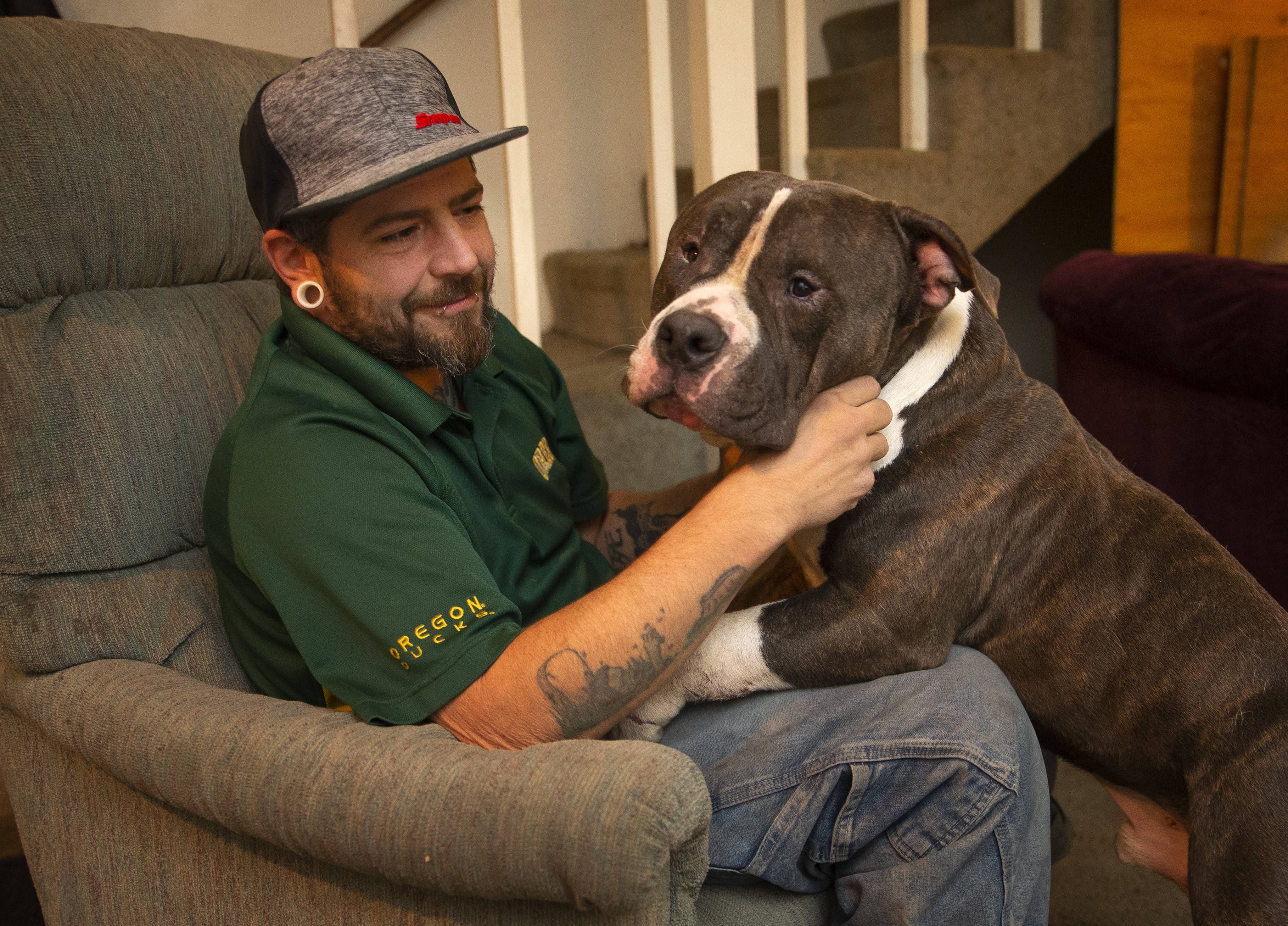Offender story: Thomas Arrowwood
Editor's Note: In Oregon, information pertaining to juveniles is not disclosed to the public, unless that juvenile, 15 or older, is prosecuted as an adult for a Measure 11 crime. Thomas Arrowwood agreed to be identified in hopes of shedding light on the children criminally prosecuted before 2014 who are subsequently punished for life. This is Arrowwood's story.
Thomas Arrowwood spent more than eight years in juvenile detention with the Oregon Youth Authority, after pleading guilty to a sodomy charge in juvenile court in 1992. He was 12 years old at the time, but the crime occurred when he was 8 or 9 years old, he said. He and a younger relative had "experimented" with each other in what he said was "mutual curiosity." But the younger relative told a friend at school, and that friend told an adult, who told police.
Next thing Arrowwood knew, police were at his front door.
"My parents didn't find out until the police showed up at my house," Arrowwood said.

Now 38, Arrowwood essentially grew up in juvenile detention, going to two facilities and three different camps during his time in the system. He was released from custody at age 21.
"It was weird. It was a tough adjustment, being released," he said. "You go from being told what to do, when to do it, to just being given complete freedom of everything. And then they expect you not to do anything wrong," he said. "You go from full-on military-style control, to just absolute freedom, with no easement in between."
Arrowwood did get in trouble, however, racking up a few traffic violations, a misdemeanor domestic violence conviction, and three charges for failing to register or report as a sex offender, the latter of which he called honest mistakes, he said.
"I just went to work, and kept on working," he said of his newfound freedom.
None of the details of Arrowwood's case are publicly available, because his juvenile files are sealed.
Arrowwood said he initially went to work in construction, the only job he could secure when he was released from detention. Now he works on cars, his dream, thanks to an auto body shop owner who "took a chance on me and looked past my past," he said.
Growing up in juvenile detention, though, had its consequences, he said. Arrowwood recognizes in his relationships how that time away from his family and peers did a number on his emotional development.
"I missed out on my childhood. When I was sent to MacLaren (the state's largest youth correctional facility) around 1996, they stuck me in a cottage with 19- to 22-year-olds. Then the law passed that they could keep you until you were 25, so then I was in there with even older kids. It forced me to grow up," Arrowwood said. "I look at my relationships now, and I am emotionally stunted. There are things I would have learned at that point in my life, socially. But being locked up in military-grade, basically, it stops your emotional growth."
Few people know about Arrowwood's past. In relationships, when things get "serious enough," especially if they ask him to meet their children, then he tells them about his sex offender status.
“They have a right to know," he said. "I only had one real foul reaction. But she later came back and apologized and said it took a lot of heart and bravery to tell her that. But there is always that leeriness at first. I'm not going to drop that on the first date, 'cause then how are you going to get a second? But I would say 1 percent of the people in my life know about it.
“None of my coworkers know," he said. "I don't go around telling people. You get stigmatized immediately. No one cares you were 12. They shut down and stop listening."
He said he is willing to speak out now, though, in hopes of shining a light on the important issue and in hopes a change will come that will allow him and others like him to be taken off the list or never be required to register in the first place.
Arrowwood said he gets along with the victim, who he describes as his best friend, and the two see each other often. Arrowwood says his parents visited him every weekend for all nine years he was in juvenile detention. His victim was not permitted to visit by law.
Asked if he thinks the youth correctional facility taught him anything, he shared his strong opinion, "The juvenile system is a money-making machine. It's not about reform. It's not about helping the kids. It's about packing them in, getting as much as they can."